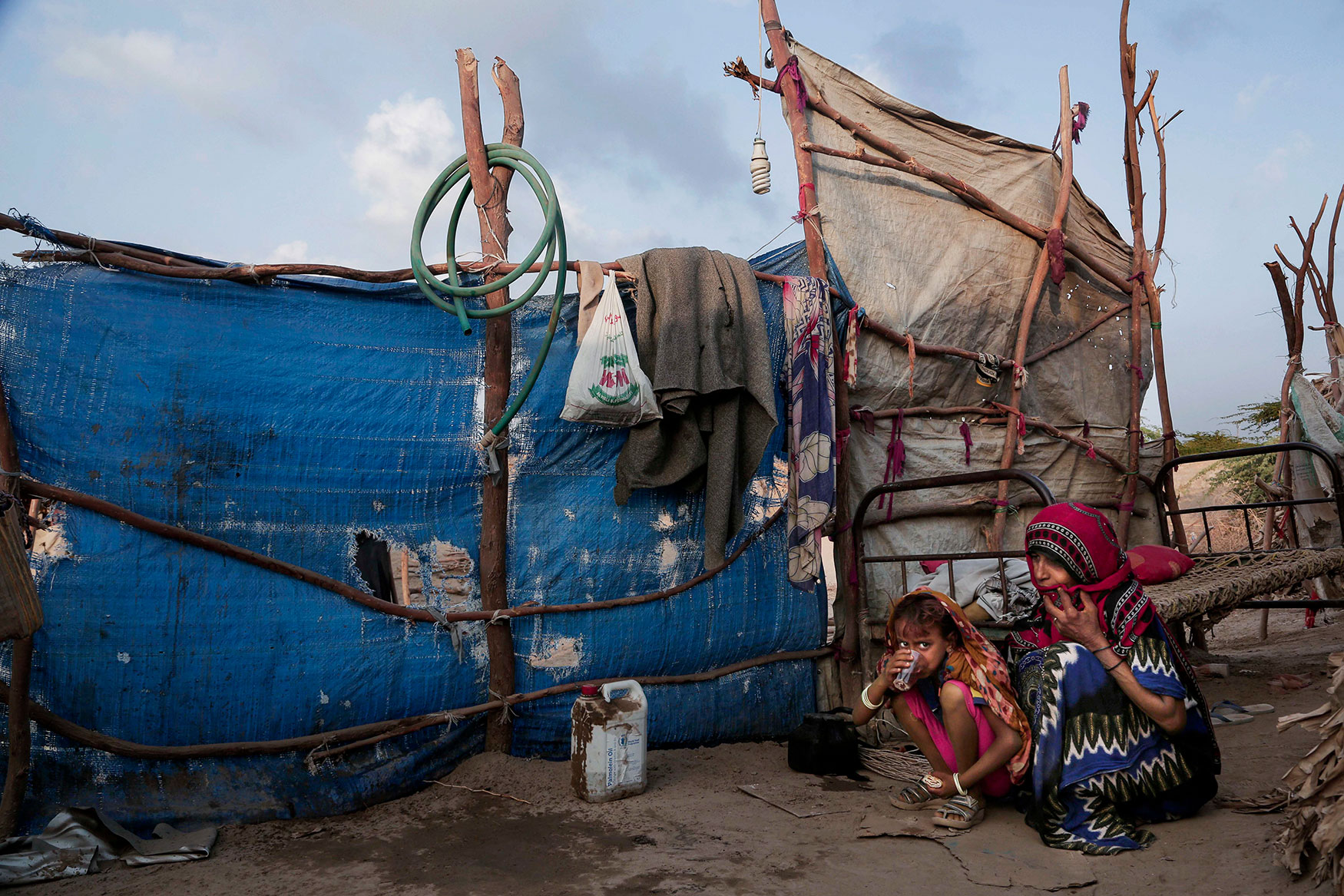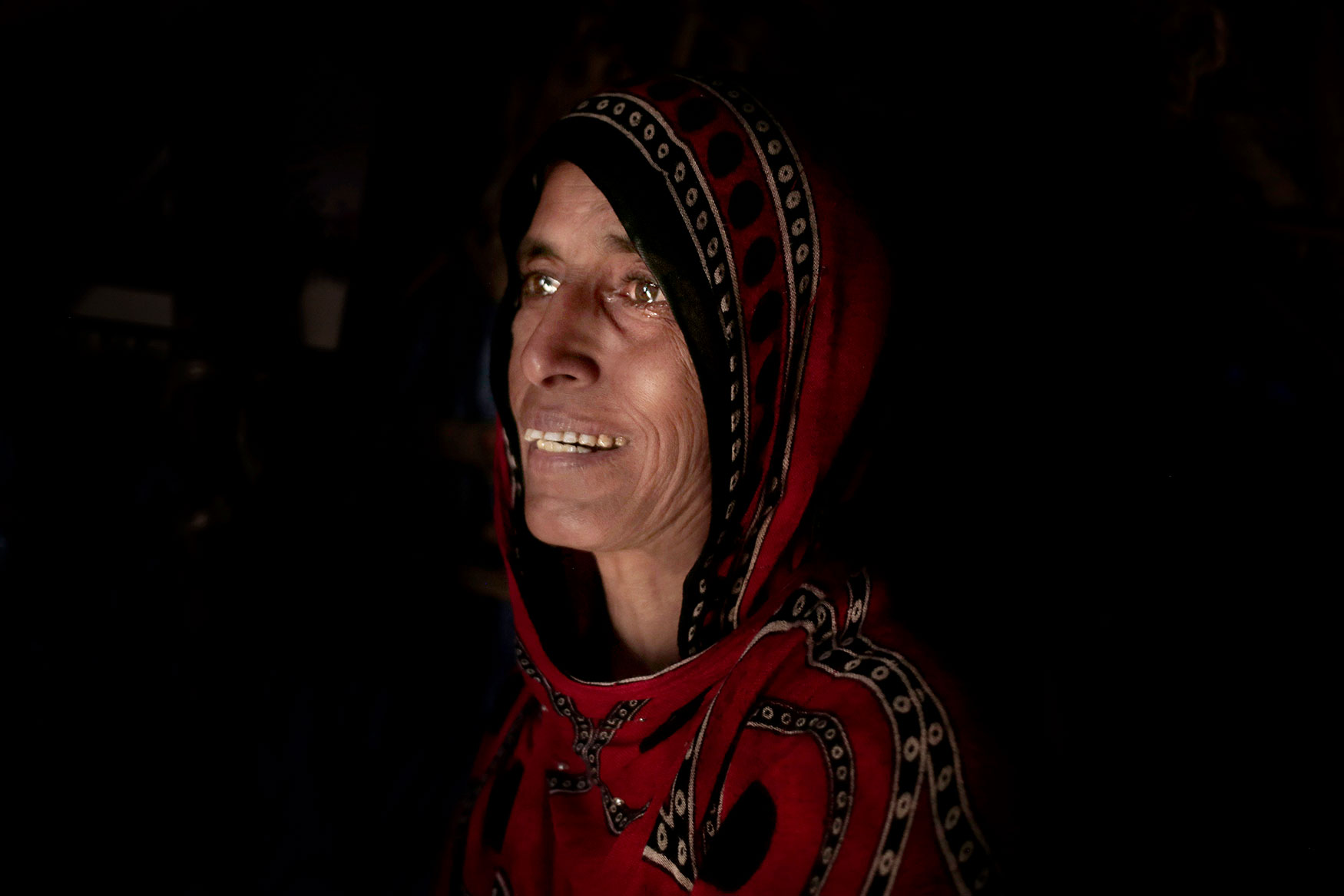‘I don’t eat so they can’

Hagar Yahia was a rebellious teen.
As a young bride, she was ordered by her mother-in-law to grind wheat with a heavy stone. But she got sick of it, broke the stone in anger and hid under the bed.
That was years ago, in their hometown of Hayis on Yemen’s western Red Sea coast, back when rebellion was affordable. Her husband made decent money as a woodcutter. Every day, they had vegetables for lunch, fish for dinner.
Now the mother of eight breaks down in tears when she talks about her family’s deprivation.
Late last year, as fighting in Yemen's civil war closed in on Hayis, they fled more than 200 miles, eventually ending up in the village of Red Star on the Arabian Sea coast in the south. Ever since, the family has struggled to find enough food.
Yahia’s cheeks are bony, not a trace of fat in them. When she smiles _ warm-hearted, she smiles as often as she cries _ her lips pull back tight across her skull, the skin creased. Her jawline runs as sharp as a knife.
“I go hungry for my children. I prefer that I don’t eat so they can. When they ask for something and I can't afford, it burns me from inside.”
The family, including her youngest child, Awsaf, a thin 5-year-old, lives in a hut made of tree limbs and rags, and sand blows in from the nearby coastal dunes. She and her husband, Mohammed Nasser, usually eat one meal a day.
On good days, when Nasser finds work cutting and hauling wood, the family may have a pot of lentils or bits of fish. Otherwise, they eat a hard, heavy bread called “tawa” that fills the stomach, washed down with sweetened tea.
Her family is among 18,000 people who escaped war zones further west and streamed into Abyan province, a stretch of territory where Yemen’s barren mountains meet the Arabian Sea.
Abyan’s own population of 580,000, who eke out a living in the few fertile valleys and pockets of coastal plain, were already struggling and hadn’t recovered from successive previous rounds of war.
Some 30,000 children under 5 in Abyan suffer from malnutrition, according to UNICEF.
Awsaf, Yahia's youngest child, is one of them. Yahia fears for her the most.
Awsaf had deteriorated. She’s getting no more than 800 calories a day from bread and tea, half the normal amount for a girl her age.
She was diagnosed with malnutrition, but her father was too weak from hard work and lack of food to take her back to the doctors.
“My husband cries at night for the children and for us. I tell him to leave it to God,” Awsaf says.
Photos by Nariman El-Mofty
Text by Maggie Michael
Visual artist and Digital Storyteller at The Associated Press







